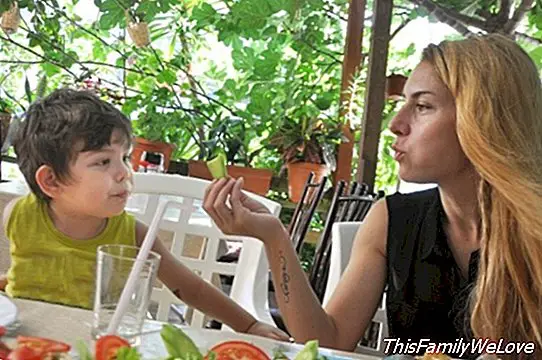10 recommendations of the Mediterranean Diet

It's something we all know, the Mediterranean Diet is the "number one", the healthiest and the one that will make us live more and better, and it is easy for us to remember and repeat this message, even with a certain degree of satisfaction and complacency, because they have told us that it is ours, our diet, it is just that" the Mediterranean ", and of course, always like to know on the side of the winners ... or not?
However, what do we really know about the Mediterranean diet? If we ask any passerby on the street, we will surely get answers like: take fruits and vegetables, a glass of red a day, vegetables, pasta, take five meals a day (breakfast, mid-morning, lunch, snack and dinner) (very important breakfast) and, of course, use olive oil (in this answer surely 99 percent of the "respondents" agree) ... but, being all this true ... is this all?
Who named the Mediterranean Diet?
The term Mediterranean Diet is attributed to Ancel Keys, an American physiologist known for his contribution to the study of the effect of diet on cardiovascular diseases. Keys and his collaborators published, in the 80s, the "Study of the Seven Countries" that even today is a reference in the science of Nutrition. Keys died in 2004, in Italy at the age of 100 years.
Are they just food?
Keys and his team warned that the incidence of coronary heart disease was lower in rural areas of southern Europe, inferring that there should be a protective factor in lifestyle, which they labeled as "Mediterranean way" (mediterranean way). Subsequently, in the dissemination of Keys results, the concept of "Mediterranean style" was assimilated with that of "Mediterranean diet".
But as the "father of the child" pointed out, for Keys, the difference found was not only what the Mediterranean people ate, but how they did it and, ultimately, how these people lived.
The population that Ancel Keys studied was eminently rural with few resources. So they ate the food that the land gave them and it was within their reach: olives, cereals, fruits, vegetables, nuts or legumes. The source of proteins were products such as milk, cheese, yogurt and fish, which they could extract from their coasts. The meat and the products derived from it (sausages) were of scarce consumption and in small quantities.
But also the Mediterranean, was a population that cultivated the land manually, even without the help of the machines, that is, it was a peasant population and limited resources, ate just enough and the work of the field forced them to do what that today we call "exercise".
What remains of all that?
1. We have the culinary tradition, which we must take care of and not lose, threatened by the loss of interest and time of men and women in learning what mothers used to do, cooking.
2. We still have the products that are still cultivated in our environment and whose quality we must promote by selecting an agriculture that is less intensive and more friendly to the planet; flee from fleeing the sea or exhausting the earth to produce more than we need.
3. We have the pleasure to eat as a family, giving food a value beyond the calories and nutrients that provide us; because the important thing is not only that we put on the table but with who and how we share it.
And what have we forgotten?
1. We have forgotten frugality and exercise. In addition to eating what we owe and cultivating only what we need, we will have to recover the memory of when we ate to replace what was being spent.
2. Cultivate the variety instead of the quantity and reduce the rations, in general but fundamentally what is more expensive in the shopping cart, the meats.
10 basic recommendations of the Mediterranean Diet
According to the "Mediterranean Diet Foundation", these are the 10 basic recommendations that provide the greatest health benefit.
1. Use olive oil as the main fat for cooking.
2. Consume foods of plant origin in abundance: fruits, vegetables, legumes and nuts.
3. Bread and food from cereals (pasta, rice and especially whole products) should be part of the daily diet.
4. The little processed foods, fresh and seasonal are the most suitable.
5. Consume daily dairy products, mainly yogurt and cheeses.
6. Red meat should be consumed in moderation and if it can be as part of stews and other recipes. And the meats processed in small quantities and as ingredients of sandwiches and dishes.
7. Consume fish in abundance and eggs in moderation.
8. Fresh fruit should be the usual dessert. Sweets and cakes should be consumed occasionally.
9. Water is the drink par excellence in the Mediterranean. The wine should be taken in moderation and during meals.
10. Perform physical activity every day, since it is as important as eating properly.
Marisol Nuevo Espín
You may also like:
- The vegetarian diet in children
- Decalogue to start exercising
- Olive oil, health benefits




